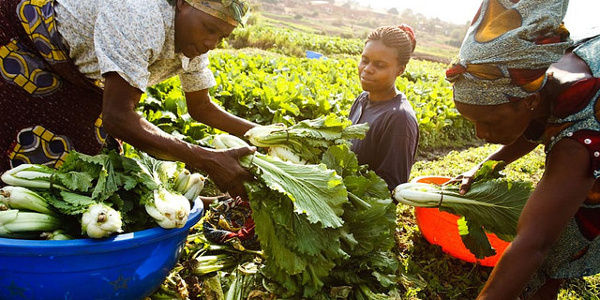 Farmers bemoan difficulty in getting loans from banks
Farmers bemoan difficulty in getting loans from banks
Banks still regard agriculture as a risky venture and mostly prefer not to extend funding to the sector, despite the existence of the Ghana Incentive-based Risk-sharing System for Agricultural Lending (GIRSAL).
GIRSAL works by de-risking agricultural financing for financial institutions, by issuing agricultural credit guarantee instruments to enhance the total amount of credit to the agricultural and agribusiness sectors but despite its existence, players in the agricultural value chain say they still face the age-old problem of rejection by financial institutions.
Chronicling his experience in accessing funding from banks to grow his sweet-potato production and processing business, Emmanuel Darkey of EDarkey and Associates said: “I have very bitter experiences with banks. I think they are one of the contributors to the dwindling fortunes of the agriculture sector”.
“They [banks] are not helping. I don’t want to mention names, but I sent applications to a few banks and the process can take three years in addition to the documents they will be asking for. It is too much! They prefer funding someone who brings toothpicks from China than funding someone here to produce because they know their money is intact. The person sells and gives their money back because with agriculture you sometimes experience poor harvests due to climate change,” he bemoaned.
He spoke in Accra during an investment dialogue for selected agribusinesses, investors, industry experts and financial institutions organized by the Private Enterprise Federation (PEF), and said his experience is one of frustration and disappointment.
Similarly, Alfred Quaynor, Chief Executive Officer of Precision Solutions, a firm that provides spraying and crop monitoring services using drones and technology tools – believes banks have yet to fully understand the concept of agricultural financing.
“A lot of them do not understand agriculture, so they see agriculture funding as any other business,” he said, adding that there is a need for banks to invest more in people who understand the nitty-gritty of the industry – agriculture finance professionals.
Just like Mr. Darkey, he said: “I started this company about two years ago. Anytime I go to financial institutions, they tell me I need to be about three years old to qualify for a facility and I do not have traction. Where do they expect me to get support from to survive those three years?” he quizzed.
Although agriculture is generally considered high risk for lenders in Ghana, the story of banks still not extending enough support to the agribusiness sector was a monotonous one at the gathering – which raises concerns about whether banks are actually taking advantage of GIRSAL.
Mr. Darkey, who produces for local and foreign markets, added: “Government has established the Ghana Agriculture Risk Insurance Scheme, but they are not taking advantage of it. There are other institutions which have funds to support the sector, the banks just have to go and take it but because of interest rate differences, they don’t want to go for those funds”.
Meanwhile, according to a May 2020 Banking Sector report by the Bank of Ghana, credit to the agriculture sector represented 4.5 percent of total credit to the private sector in March of that year, up from 4.3 percent the previous year.
On the way forward, Mr. Quaynor called for dialogue between policymakers, service providers and all stakeholders, saying: “We need to sit together and find common ground, and not one person thinking this is what the other person needs. If you haven’t sat down with me, you may see my needs from the other side of the coin and not my own”.
Credit: Source link


Comments are closed.